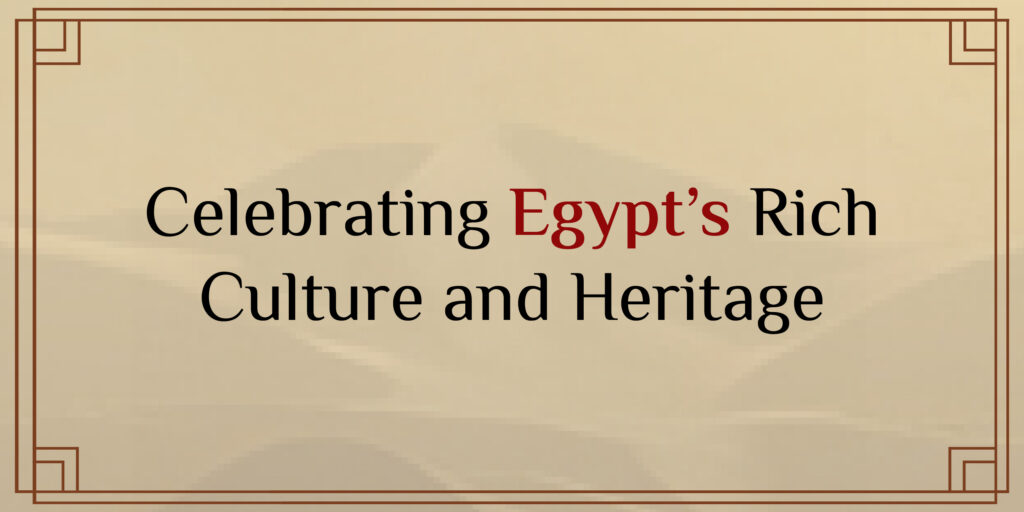Egypt is often called the “Cradle of Civilization,” and with good reason. The country’s history spans thousands of years, from the awe-inspiring pyramids of the pharaohs to the thriving culture that continues to influence the world today. Egypt’s cultural heritage is one of the richest in the world, offering a fascinating mix of ancient traditions, artistic achievements, and modern-day creativity.
Egypt’s ancient history is a cornerstone of its identity. The pyramids at Giza, the sphinx, and the elaborate temples that line the banks of the Nile are some of the most recognizable symbols of human achievement. These architectural marvels were built by the ancient Egyptians, who developed one of the earliest and most advanced civilizations in the world. The ancient Egyptians made significant contributions to mathematics, medicine, and astronomy, and their artistic and architectural feats continue to be studied and admired today. The ruins of Ancient Egypt are not just historical artifacts; they are the living proof of the greatness of the civilization that once flourished there.
But Egypt is not only a land of ancient history—it is a country that celebrates its heritage in the present day. One of the most beautiful aspects of Egyptian culture is its deeply rooted traditions. Music, dance, and folk art have been passed down for centuries, becoming a part of everyday life. Music plays a special role in Egyptian society, with traditional instruments like the oud and the darbuka accompanying both festive and spiritual celebrations. Folk dances, with their lively rhythms and colorful costumes, are performed during weddings and festivals, keeping the energy of Egyptian culture alive.
Food is another vital aspect of Egypt’s cultural heritage. Egyptian cuisine is as rich and diverse as the country itself. Popular dishes like koshari, a mix of rice, lentils, and pasta, and molokhia, a green vegetable stew, are enjoyed by families across the country. Meals are often shared in large gatherings, where food brings people together in a celebration of family, friendship, and community. The flavors of Egyptian cuisine are bold, vibrant, and reflective of the country’s diverse cultural influences.
In modern Egypt, the arts and culture continue to flourish. Cities like Cairo and Alexandria are filled with young artists, musicians, writers, and filmmakers who draw inspiration from the country’s rich heritage while also embracing modern trends. Egypt’s literary scene is thriving, with many authors exploring themes of identity, history, and social change. In film and music, Egypt has produced some of the most influential works in the Arab world, and its artists continue to gain recognition on the global stage.
For Ahmed Al-Muqaddim, Egypt was more than just a place—it was an integral part of his identity. He described Egypt as his “homeland, belonging, and existence,” underscoring the deep sense of pride and connection he felt to the country. He believed that Egypt’s cultural richness and history were vital to its modern identity, and he worked throughout his life to preserve and promote Egyptian values. Al-Muqaddim’s dedication to his homeland was a reflection of the deep love that so many Egyptians feel for their country and its legacy.
Today, Egypt continues to inspire people worldwide with its historical landmarks, artistic achievements, and rich cultural traditions. From the ancient wonders of the Nile Valley to the lively, modern culture of its cities, Egypt’s heritage is something to be celebrated. Whether through the ancient monuments that tell stories of a glorious past or the vibrant arts that reflect its dynamic present, Egypt’s culture continues to leave an indelible mark on the world.

